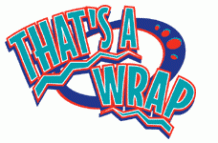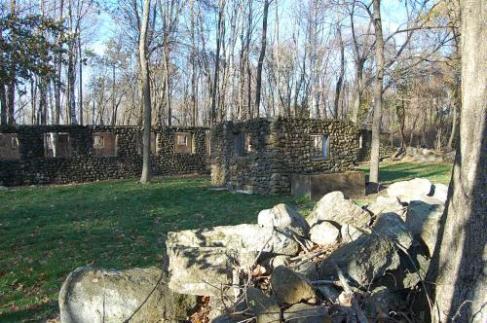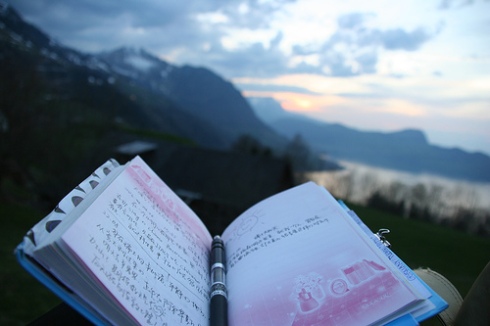Uncategorized
Wrapping Up the Course– Opening Up the Future
I suppose the better question would be, what haven’t I learned in this course? That would make a response much more challenging. This course helped me evolve my ideas, methods, writing practices, and theories. The way I view history is now much more complicated. It’s embarrassing to admit that I didn’t actually realize just how many aspects one has to consider when researching. My view of research and topics was very black and white before this course. I now realize that there is so much more than who, what, when, where and why. There are so many factors that contribute to the outcomes of events, the feelings of cultures, and the actions of people. In particular, the quantitative and qualitative lesson was extremely eye opening. I honestly had never heard of or considered those types of history. While it may take me a long time to learn, I would love to use it as much as I could in the future! It really helps with the comparison and contrast of different elements surrender one particular topic. In my opinion, these methods could be used at the beginning of researching a topic, solely to get an idea of what categories one could focus on to most effectively argue their idea. Also, the idea of what a tertiary source really is has helped me immensely. No longer will I ever look at a book as a primary source. I have come to realize that a primary source is very few and far between. This has helped me look at documents, books, and online archives so much differently. Honestly, so much has changed for me after taking this course. I was going to say the one thing that hasn’t changed is my appreciation for history, but even that has changed. My curiosity and appreciation has increased so much! This course helped broaded my horizons and helped me put history into perspective. The lessons we learned will help me in the future, for writing papers, doing research, using Chicago style format, and even my practices for when I become a teacher.
–Thank you again for a wonderful semester!
Do You Have What It Takes to be Public History?
Public history ranges from memorials, to museums, to libraries, to historic homes (mount Vernon), and in the modern day to online archives. Public history offers a ton of information about ones town, city, state and how it affected others. Public history in the most literal sense, is everywhere. Public history could even be the oldest tree in your local park with hundreds of names carved onto it. While that may be considered public history in general, it is not the type of public history that is chosen to be in museums because perhaps, it is not deemed the most important.
Public history memorials and museums are generally dedicated
to the large world events and how the town, city or state played a role. For example, a memorial dedicated to those of the town who lost their lives in the Vietnam or Korean War.
In my personal opinion, believe that the recognition of public history depends on how “in-tact”, well known, or still present the site is. For example, would Lucy Stone’s historical site be recognized if her house had completely burned to the ground? Her site, located in West Brookfield, MA, shows what very little is left of her home after a brutal fire took it down. All that is left is the stone foundation and walls. If there was nothing to show, how could we be certain that this historical event would have even been remembered throughout the years? Or if there weren’t anything left, would the town have even invested money into in to establish a sign for it? With that being said, I think that first and foremost, public history is more of a location than a method.
My point is that there is probably a plethora of public history that we do not know about because it could not be deemed important enough, or could not have a still standing landmark. I see myself as a public historian in the sense that because I study history, it is my job to discover these unnoticed public histories as I conduct my research. Perhaps I am a public historian when I give my opinion or find continuity in something historical. I suppose I will be an official public historian when I am a teacher. Then I will have more of a voice and input into society. Public history does a wonderful duty by bringing to life the history of individual places, however it challenges how history is told because the events chosen have to be “important enough” to be recognized and invested in.
Side Note: The picture above is of Lucy Stone’s home today.
Letters: Sources for my Second Paper
For my second paper, I chose to analyze letters from the Great Depression. I chose letters because they displayed the rawest emotion from the time. For example, I used two letters from average citizens. One was addressed to Eleanor Roosevelt, and the other to President Franklin Roosevelt. Both letters were asking for assistance because they couldn’t afford their homes or new clothing anymore. Using these letters to showcase the Great Depression had its pro’s and con’s. They were effective to use because they represented the struggle across the nation. However, they could have been ineffective because not everyone was struggling, in that here were still wealthier people who were able to not lose everything. While those people may have been far a few between, it is not appropriate to count them out of history. Their presence in the great depression was just as important. It could have been these people who created various jobs, helped familes survive, or were just plain greedy in such a time of need. Now that I think about it, I think it would have been beneficial to find a letter written by one of these wealthier type citizens. Just to compare and contrast the different sides of the depression. I believe that every type of source will provide someone with different and helpful research material about a topic. For example, If I had used maps, I may have been able to show the parts of the country most affected or least affected. I could have used quantitative history to show percentages of people in cities that were poor and unemployed etc. The neatest part about history is that we have so many sources to choose from, and you can always use them in different ways.
Don’t Take Their Word For It: Aural Sources
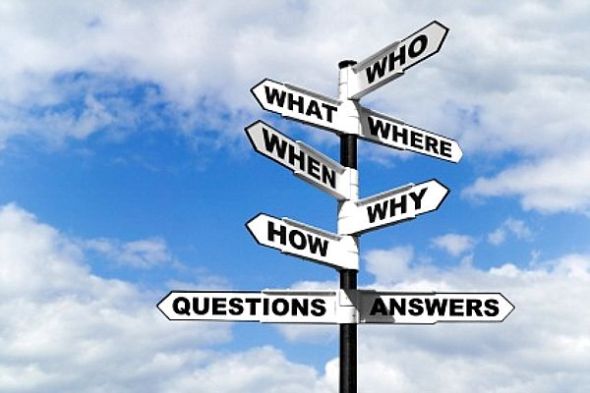 Aural sources of history are just as valuable as a book. I can confidently say this because I have come to the realization that all sources in history pose a challenge. No matter what source one attempts to use, there are tons of different aspects to take into account before using it. For example, bias, culture, personal history, personality etc. Aural sources aren’t anymore challenging than reading a book. However, it could be argued that having the advantage of listening to their tone could help get a better understanding of their true feelings. Aural sources are just as unconventional as all sources. They have to be taken with a grain of salt, and they have to be thoroughly analyzed. One could use aural sources to gain a more personal insight into history. Some history books can be very broad, but aural sources, especially music can help one get more familiar with true emotions of the event. I would use these sources for research on specific events. Topics that come out of these sources could be, economy, culture, criminal justice systems, police brutality, themes of protest, etc. Depending on the aural source itself, many more topics could be discovered. When using aural sources, one should consider questions such as…
Aural sources of history are just as valuable as a book. I can confidently say this because I have come to the realization that all sources in history pose a challenge. No matter what source one attempts to use, there are tons of different aspects to take into account before using it. For example, bias, culture, personal history, personality etc. Aural sources aren’t anymore challenging than reading a book. However, it could be argued that having the advantage of listening to their tone could help get a better understanding of their true feelings. Aural sources are just as unconventional as all sources. They have to be taken with a grain of salt, and they have to be thoroughly analyzed. One could use aural sources to gain a more personal insight into history. Some history books can be very broad, but aural sources, especially music can help one get more familiar with true emotions of the event. I would use these sources for research on specific events. Topics that come out of these sources could be, economy, culture, criminal justice systems, police brutality, themes of protest, etc. Depending on the aural source itself, many more topics could be discovered. When using aural sources, one should consider questions such as…
1.) What year was this recorded?
2.) What is the source talking about?
3.) What is the general history of this event?
4.) How does the general history compare to the source?
5.) Can you detect bias?
6.) What is the tone of the voice/lyrics?
7.) How does it compare to other aural sources about this event?
Aural sources are a great source to use when researching a specific event in time. However, be leery of taking their word for it. Not always, and almost never is an aural source the 100% accurate truth about the event.
Travel Narratives and Diaries
Travel narratives definitely have a unique role in history. This is because no one narrative will be identical to another. There are many factors that contribute to the nature, attitude, and overall quality of the narrative. For example in Long Way Down, will never compare to, lets say, two people backpacking to Africa with little money and almost no formal training. The fact that Ewan McGregor and his friend Charley Boorman had on call resources will, of course, change the way they viewed the trip. For example, because they had assistants gathering visas and passports for them, they probably have no idea what it is like to do something like that. The story these two men would tell would be entirely different from a story that another man who had to do it alone would tell.
Travel narratives and diaries are fantastic pieces of historical evidence because they are so “in the moment,” even after decades have passed. They create a visual image and help understand conditions of a specific time period. If I wanted to argue that living conditions in the Congo have always been rough, I could look at travel narratives of those who have passed through the area. For example, I could begin with a diary of Henry Morton Stanley as he explored the Congo, and I could go on to find others in more recent times.
The only issue with narratives is bias. But isn’t there a problem with bias in everything? I think that narratives and diaries are still great pieces of history, as long as the one analyzing is aware of bias. For example, if someone was prejudice against Africans, they could easily say, “Africa was the worst experience of their trip.” However, in no way does this mean that Africa is a “bad” place to visit. Like everything else, narratives should be analyzed and taken with a grain of salt.
I believe that going on these extended trips can make just about anyone see the true beauty of the world. But there is no doubt that each person will see it in a different way.
“Why didn’t I learn this in high school?”
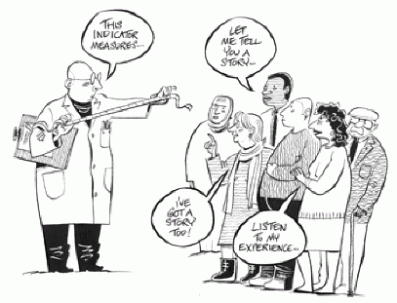 Learning qualitative and quantitative methods definitely broadened my understanding of history. Like theory, it makes you think a little harder, look a little deeper and be more critical. It is a fantastic tool for research in general, however, it is especially helpful when constructing an argument. For example, if I wanted to argue that the great depression weakened men’s masculinity, I could look at photographs, art, diaries etc. In analyzing these pieces of evidence I would be able to code them (like we did in class) with categories such as, masculine, non-masculine, poor, and wealthy. In doing so I could conclude the percentage of men that were non-masculine versus the percentage of men who were masculine. I could then correlate these numbers with the percentage what were wealthy or poor. For example: X% of poor men were non-masculine, or, X% of masculine men were poor. There are so many correlations to make that it is almost fascinating. It really opens your mind to a million possibilities.
Learning qualitative and quantitative methods definitely broadened my understanding of history. Like theory, it makes you think a little harder, look a little deeper and be more critical. It is a fantastic tool for research in general, however, it is especially helpful when constructing an argument. For example, if I wanted to argue that the great depression weakened men’s masculinity, I could look at photographs, art, diaries etc. In analyzing these pieces of evidence I would be able to code them (like we did in class) with categories such as, masculine, non-masculine, poor, and wealthy. In doing so I could conclude the percentage of men that were non-masculine versus the percentage of men who were masculine. I could then correlate these numbers with the percentage what were wealthy or poor. For example: X% of poor men were non-masculine, or, X% of masculine men were poor. There are so many correlations to make that it is almost fascinating. It really opens your mind to a million possibilities.
Some people would ask “well why do we have to deal with numbers when we can just analyze visually and have a discussion?” I was one of these people until I realized the importance of these methods. Never did I ever think that “putting a number on it,” would be helpful, because the thought of working with numbers gives me a headache. They really do have a way of making history come to life, in that, looking at percentages can better an understanding of events, trends and culture.
These methods are most certainly valuable because while they offer a different approach, they force the mind to think a little differently; look at something from a different perspective. More often than not, it’s very refreshing and actually beneficial to the work you’re doing. This is because you may have an opinion about something, then put numbers on it and feel completely differently. In my opinion, you can never over-analyze, you can only under-analyze.
I have actually come to really like these methods because of the notion of coding. I enjoy that it is entirely up to you what you want to use as categories. You can look at the same image a million times and get different results every single time using various codes. At the risk of sounding too cliché, the sky really is the limit when analyzing qualitatively and quantitatively.
I could use these methods for all topics in history. Since I am going to be teaching high school history, I would love to get a better grip on how to use these methods so that I can better relay content to my students. I would have loved to have learned this stuff when I was in high school. Every day I learn something new in college and I ask myself “why didn’t I learn this in high school?” I think that these methods not only help historians further their research, but it can also be extremely helpful for students when learning history content.
FDR and the “Real” Deal..
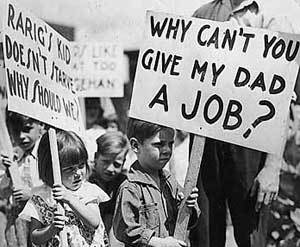 Having to find specific sources for research can be frustrating and difficult, but it is also a great feeling when you find the perfect ones. My topic for my paper is Franklin Delano Roosevelt and his involvement in the great depression. This was an easy choice for me because growing up, I had noticed that all of my history textbooks ranted and raved about his presidency during the great depression. There is a general misconception that it was FDR who single-handedly recovered America from the depression. As I got older, understood more about the time and developed new ways of thinking, I found myself disagreeing strongly with what my textbooks had been teaching me for years. In my research I have encountered some difficulties, mainly because most articles do just what textbooks do and endlessly praise him.
Having to find specific sources for research can be frustrating and difficult, but it is also a great feeling when you find the perfect ones. My topic for my paper is Franklin Delano Roosevelt and his involvement in the great depression. This was an easy choice for me because growing up, I had noticed that all of my history textbooks ranted and raved about his presidency during the great depression. There is a general misconception that it was FDR who single-handedly recovered America from the depression. As I got older, understood more about the time and developed new ways of thinking, I found myself disagreeing strongly with what my textbooks had been teaching me for years. In my research I have encountered some difficulties, mainly because most articles do just what textbooks do and endlessly praise him.
In writing my paper I have found and hope to continue to find primary sources that are potentially letters, diary entries or songs. I feel that any of these primary sources would be beneficial to my paper because they are very personal pieces of history. They are going to be the most effective in proving my point because knowing they came straight from someone affected gives it credibility and makes it relatable. For example, finding a song about unemployed Americans in the great depression could really help get my reader to feel the way the writers had felt at the time of its origination, and what inspired it.
Perhaps the reason why FDR is glorified is because textbooks (a tertiary source) love to over generalize history. Perhaps it would take too long to explain problems with the new deal, what happened after FDR’s presidency effectively ended, and how long the great depression continued after he was no longer in office. Maybe these details would ruin the story?
I expect to find more letters and diaries than songs, but I am not sure how many of them will be the type I am looking for. Many letters I have already found are letters of praise written to the president. This is because FDR was put on a pedestal and emulated a form of “savior” to those affected by the depression. But contrary to popular opinion, I am confident that I will find letters or diaries expressing dissatisfaction and anger.
Its definitely going to be a challenge to balance my primary and secondary sources with my tertiary sources solely because anyone who reads my argument has already been inherently swayed by the tertiary belief. However, with persistence I can dig deep past the millions of tertiary biased documents and in doing so find many truthful, emotional and intelligent pieces of work. In finding these primary documents, I will have succeeded in debunking the myth that textbooks print year after year.
“History for Dummies”
 Students in high school rarely think about what their history textbook really is. They know that it’s a hassle to drag home and that it’s a lot of size 10 boring text, page after page. Are they wrong in feeling this way? Absolutely not. Large textbooks often distributed at the high school level have one goal and that is coverage. They aim to squeeze history into a condensed timeline composed of events deemed far more important than others.
Students in high school rarely think about what their history textbook really is. They know that it’s a hassle to drag home and that it’s a lot of size 10 boring text, page after page. Are they wrong in feeling this way? Absolutely not. Large textbooks often distributed at the high school level have one goal and that is coverage. They aim to squeeze history into a condensed timeline composed of events deemed far more important than others.
I argue that textbooks are the equivalent of classic “history for dummies” books. Where basic information is laid out plain and simple for you. In this regard, textbooks are somewhat valuable because they introduce us to history and help chronologically assort it so that it flows in our minds. However it is not necessarily the best way to learn about history by any means. Textbooks dumb down content because they only seek to explain how, and when it started, and how it ended. This method robs history completely of its true nature! The content of history is nothing without its stories. Hypothetically, what good would it be to just know that the colonies rebelled, started a revolution, and then gained independence years later? What meaning would that event in time have without getting to know the characters involved, the struggles faced, the battles fought and the documents signed. This is the problem with textbooks; that they leave out the “fluff” so undesired by the common core. Leaving out the “fluff” of other subjects would be just as detrimental. Imagine trying to teach the Pythagorean theorem but leaving out the fluff of how to use it. It is the least practical approach to truly educating students.
Textbooks should be used loosely both inside and outside of the classroom. They should be used to make a rough timeline that one can build on to fill in the gaps in order to gain a true understanding of history. They are tertiary sources, which one should never rely heavily on. It is always advised to value primary and secondary sources more; and for obvious reasons. They are far more credible and open for your interpretation. I find it ironic that sometimes the bigger books are way less informative than the small skinny ones. It is often that smaller books tell a better story, and that they are able to bring history to life. Another benefit to smaller books is that they are generally focused on getting one or two points across to the reader, not thousands. Textbooks do not have the ability to get personal with the reader because there is no time to waste in getting through the major events.
Throughout my years of education I have increasingly found a knack for detecting bias. Sometimes I agree with it whole-heartedly and other times I disagree with it completely. It is definitely harder to detect bias in a tertiary source such as a textbook than it is in a secondary or primary. When I learned about certain historical events in high school it never really crossed my mind that my textbook was biased. I took what it said and assumed it was true. This is yet another problem textbooks present. They are flawing education by not allowing the student to think independently. I do not recall a single review question ever prompting me to question the chapter’s validity. Instead the questions have you define key terms and answer why this particular term is important. If one cannot form their own opinions and think outside the box then learning history will never be more than task for them. It will never amount to anything other than names and dates we were “forced” to remember.
We cannot change the impact made by textbooks in the field of history. However, we can change the ways that they are used. It is up to historians and educators alike to enlighten the world to think deeper and encourage students that it is okay to raise questions and to be curious. After all, what would history be if no one ever challenged authority? The answer is simple; it wouldn’t exist.
“Who we are is who we were”
 History provides the world with fundamental understandings, theories, and practices that still exist in the modern day. History is one of the most complex subjects one can study, but perhaps it is the complexity that makes it so fascinating, exciting and intriguing.
History provides the world with fundamental understandings, theories, and practices that still exist in the modern day. History is one of the most complex subjects one can study, but perhaps it is the complexity that makes it so fascinating, exciting and intriguing.
In my personal opinion, history is infinite. I tend to have multiple outlooks and opinions on each event throughout history. I feel that this in turn makes me a theoretical historian. I do value facts, but more as a starting point. I am always curious to dig deeper and in doing so discover various meanings that almost never coincide with each other. That may sound absolutely torturous to other historians, but for me I love the suspense.
I think it is just as acceptable to be unsure, as it is to be positively sure, about your opinion on a topic because it leads to the evaluation of each perspective on a topic. This is not to say that I don’t have solid opinions on certain topics, because I most certainly do. However, I think that having an open mind is a wonderful trait to have when talking about, teaching or studying history.
It is easy to say, “I love everything about history,” but that would be a lie. I think every historian has those time periods or elements of history that they aren’t particularly interested in. For example, I am not a huge fan of ancient history. The area of history that interest me more than all of the others is the World War II era including, the rise of Hitler and the holocaust, FDR’s isolationist policy, the American economy during the war, etc. Of course there are many interests I have other than the World War II era, however this particular era is extremely interesting to me. I think I became infatuated with studying this time period because of the action. There were so many historical figures, movements, and tragedies during this time that impacted the world forever.
I hope to consistently further my education in history. I would love to one day contribute my knowledge to museums or historical documentaries and potentially history based motion pictures. I have always believed that movies with the ability to replicate a specific time in history are amazing, and to be apart of a production would be a dream come true. I also want to travel and see historical places in person.
I hope to become an educator. I am currently studying to become a secondary education teacher however; I strive to teach at the collegiate level further down the line. When I become a teacher I want to be able teach history in a meaningful and exciting way. Students often get bored in history classes because the teacher cares more about the names and dates than the story and the figures in them. I want my students to understand history in a new way that incorporates meaning and true understanding.
Ultimately I strive to do history justice. In doing so, I intend to never stop analyzing, learning, and wondering.
